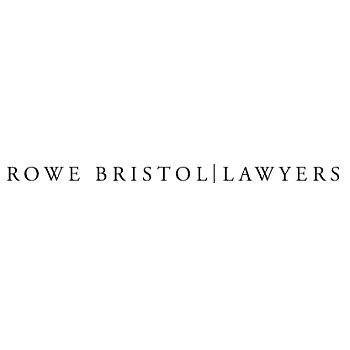Best Securities Lawyers in Australia
Share your needs with us, get contacted by law firms.
Free. Takes 2 min.
Or refine your search by selecting a city:
List of the best lawyers in Australia
About Securities Law in Australia
Securities law in Australia governs the offering, buying, and selling of securities, covering stocks, bonds, and other financial instruments. The Australian Securities and Investments Commission (ASIC) is the primary regulatory body overseeing the securities market to ensure transparency and protect investors. This area of law includes the regulation of corporate conduct, market activity, and the prevention of fraudulent practices, playing a crucial role in maintaining market integrity and economic stability.
Why You May Need a Lawyer
Securities law can be complex, and legal assistance might be necessary in various scenarios, including:
- When starting a new business and planning to issue shares or options to raise capital.
- If you are facing investigations or enforcement actions by ASIC.
- When drafting or reviewing contracts related to the sale or purchase of securities.
- If you suspect fraudulent activities or violations of your rights as an investor.
- During mergers and acquisitions where securities are part of the deal.
Legal advice can help you understand obligations, navigate regulatory requirements, and safeguard your investments.
Local Laws Overview
Securities law in Australia is primarily governed by the Corporations Act 2001. Key aspects include:
- Disclosure Requirements: Companies offering securities must provide a prospectus or other disclosure documents to prospective investors, ensuring informed decision-making.
- Licensing and Regulation: Financial service providers must hold an Australian Financial Services Licence (AFSL) to operate legally.
- Insider Trading: Strict laws prohibit trading based on non-public, price-sensitive information.
- Market Conduct: Legal provisions are in place to prevent market manipulation and to ensure fair trading practices.
- Corporate Governance: The Act outlines directors’ duties and the need for appropriate corporate governance structures to protect investors and stakeholders.
Frequently Asked Questions
What is a security under Australian law?
A security is a financial instrument representing ownership (stocks), a creditor relationship (bonds), or rights to ownership (options). It includes various financial products regulated under the Corporations Act 2001.
Who regulates securities in Australia?
The Australian Securities and Investments Commission (ASIC) regulates the securities market, ensuring companies comply with laws designed to protect investors and markets.
What is the role of a prospectus?
A prospectus is a legal document issued by companies offering securities for sale. It contains necessary information for investors to make informed decisions about purchasing the offered securities.
When is an Australian Financial Services Licence (AFSL) required?
An AFSL is required for businesses and individuals to provide financial services legally within Australia, ensuring they meet the law's standards for conduct and operations.
What constitutes market manipulation?
Market manipulation involves deceptive practices that distort asset prices, violating fair trading principles and laws against misleading or deceptive conduct.
How can investors protect themselves from fraud?
Investors can protect themselves by verifying the legitimacy of securities offerings, conducting due diligence, and understanding the information provided in disclosure documents and financial statements.
What actions can ASIC take against securities law violations?
ASIC can take various actions, including imposing fines, suspending licenses, pursuing legal actions, and banning individuals from operating within financial markets for violations.
What are the penalties for insider trading?
Insider trading penalties include substantial fines, imprisonment, and disqualification from managing corporations, reflecting the severity of the offense.
What protections exist for minority shareholders?
Minority shareholders are protected through laws that ensure fair treatment, the right to vote on major changes, and avenues to address grievances in corporate governance.
How are mergers and acquisitions involving securities regulated?
The process is regulated to ensure transparency, fairness, and compliance with legal requirements, protecting shareholders' interests and maintaining market stability.
Additional Resources
Here are some resources and organizations that can provide further assistance and information:
- Australian Securities and Investments Commission (ASIC): Offers extensive resources and regulatory guidance on securities law.
- Australian Financial Complaints Authority (AFCA): Resolves disputes between consumers and financial service providers.
- Business.gov.au: Provides a variety of resources for business owners, including guidance on legal compliance.
- Law Council of Australia: Offers resources and information on finding legal practitioners specializing in securities law.
Next Steps
If you require legal assistance in securities, consider the following steps:
- Identify Your Needs: Clearly define the legal issue or question you have about securities.
- Research and Contact a Lawyer: Look for lawyers with expertise in securities law. Use resources like the Law Council of Australia to find qualified professionals.
- Prepare Documentation: Gather relevant documents, such as contracts, prospectuses, or communications related to your securities issue.
- Schedule a Consultation: Arrange a meeting with a securities lawyer to discuss your situation and obtain tailored legal advice.
- Review Legal Options: Based on the lawyer's guidance, consider your legal options, whether pursuing a case, resolving an issue, or simply gaining a deeper understanding of your rights and obligations.
Taking these steps can help you effectively navigate the complexities of securities law and protect your interests in the Australian financial market.
Lawzana helps you find the best lawyers and law firms in Australia through a curated and pre-screened list of qualified legal professionals. Our platform offers rankings and detailed profiles of attorneys and law firms, allowing you to compare based on practice areas, including Securities, experience, and client feedback.
Each profile includes a description of the firm's areas of practice, client reviews, team members and partners, year of establishment, spoken languages, office locations, contact information, social media presence, and any published articles or resources. Most firms on our platform speak English and are experienced in both local and international legal matters.
Get a quote from top-rated law firms in Australia — quickly, securely, and without unnecessary hassle.
Disclaimer:
The information provided on this page is for general informational purposes only and does not constitute legal advice. While we strive to ensure the accuracy and relevance of the content, legal information may change over time, and interpretations of the law can vary. You should always consult with a qualified legal professional for advice specific to your situation.
We disclaim all liability for actions taken or not taken based on the content of this page. If you believe any information is incorrect or outdated, please contact us, and we will review and update it where appropriate.
Browse securities law firms by city in Australia
Refine your search by selecting a city.















